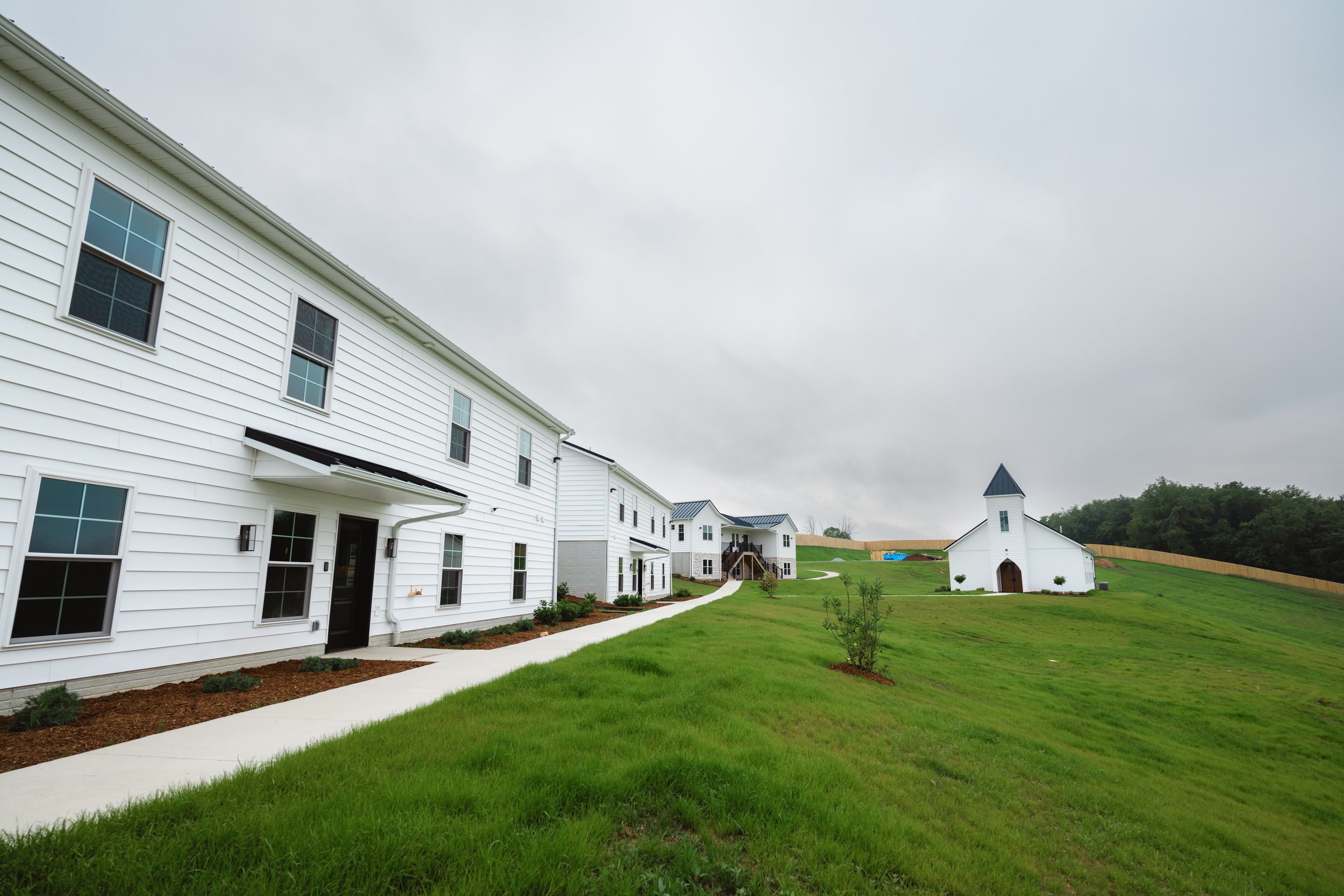
THE PARADIGM
Our Model
Building from the ground up, Safe Harbor will provide trauma-informed, holistic care for each girl. Tailored services include:
On-site medical and physical care provided by SpringVale Heath Centers
Education through our partnership with Quaker Digital Academy
Social and relational skills such as healthy conflict resolution and self-regulation
Independent living and job-skills training
Circle of Care
Some people refer to this as a continuum of care, but we like the circle analogy since we want to appropriately and sensitively surround each girl with the services she needs for her individualized healing plan. These services are critical relational points for the life of each girl in order to convey love, safety, and care.
Psychological
Our entire staff will be trained in Trust Based Relational Intervention (TBRI) and will receive other ongoing professional training specific to the care of child survivors of sex trafficking. The girls living at Safe Harbor Ohio will attend weekly one-on-one therapy sessions with in-house licensed therapists. They will also have the opportunity to participate in group therapy with other survivors. To round out the holistic approach, we will provide psychiatric medication management, farming/agricultural activities, gardening, yoga, dance, self-defense, music, art, etc., as daily enrichment options for self-regulation and body awareness.
Social and Relational
Participating in activities outside of Safe Harbor Ohio and developing community connections can be beneficial to the healing process. A wide variety of social activities will be available when appropriate, such as educational field trips, personal shopping outings, group events, and more. Although each resident has her own room and bathroom, we put an emphasis on learning how to engage in positive peer and adult relationships, including healthy conflict resolution and assertiveness training.
Spiritual
Our staff and volunteers share a common faith as followers of Christ. While we are a faith-based organization, we do not force our beliefs on any of our girls. We will always operate in an accepting, loving, non-judgmental manner. We have a nondiscriminatory policy, and we will provide care to all the girls regardless of their race and religion.
Physical and Medical
Every girl who has experienced the complex trauma of repeated sexual abuse by multiple offenders needs ongoing medical care. In partnership with many multi-disciplinary medical groups and specially trained in-house medical staff, all girls receive compassionate medical care for proper physical healing. In addition to helping make their bodies healthier, we also want to help them become physically stronger. Organized outdoor sports, an on-site workout room, and walking/jogging trail will help promote healthy living and stress release as they heal.
Educational
Safe Harbor Ohio is honored to be partnering with Quaker Digital Academy (QDA) to provide on-site education. Because of this, the girls are ensured the opportunity to re-engage their education, increasing their chance for future success. By being part of QDA, girls at Safe Harbor will be taught by highly skilled faculty, staff, and administrators, all required to hold special education certification in addition to subject-area certification and training in trauma informed care specific to child survivors of trafficking.
Independent Living and Job Skills
We understand that our girls are eager to live on their own one day and they will need a wide variety of skills to be successful. While in treatment, there are many opportunities to learn job and independent living skills through educational and/or professional experiences, including cooking, budgeting, healthy work ethics, money management, interviewing, resume writing, teamwork, leadership, and general professionalism. Our goal is to introduce and incorporate normal teenage activities into our program based on each girl's interests and dreams.
Community Connections, Family, and Relatives
If appropriate and healthy for the girls, our goal is to successfully reunite her with her immediate family or relatives in some way, through letters, monitored phone calls, visits, and family therapy. In addition, through her treatment journey at Safe Harbor, she will be connected to a variety of community resources to lend support both now and when she leaves. These sources include things like mentors, community groups (such as police departments, advocates, etc.) and other survivors.
